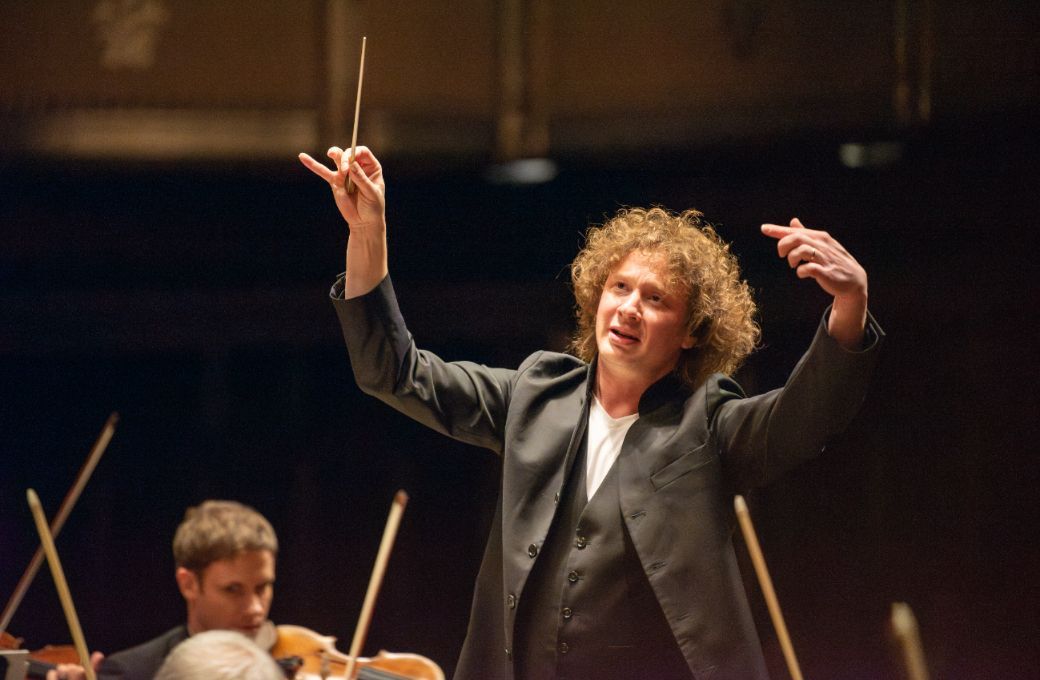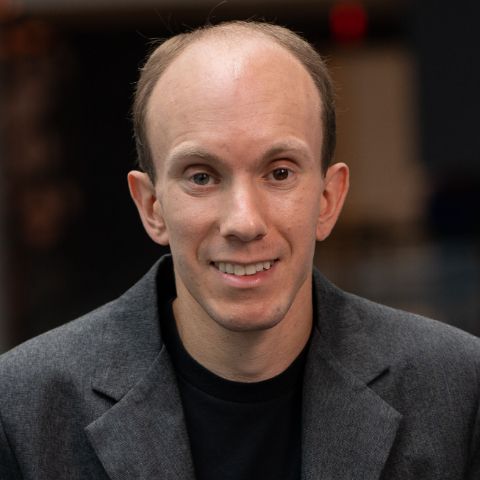Regrettably, Cleveland Orchestra Music Director Franz-Welser Möst was obliged to cancel his November appearances, necessitating a litany of substitutes being booked on short notice. The weekend’s originally scheduled program of Mahler and Prokofiev is reportedly now slotted for next season. An entirely different body of repertoire was offered instead, and handed conductor Santtu-Matias Rouvali a Cleveland Orchestra debut.

All three works performed dated from within a 30-year span, serving as something of a musical cruise through the Baltic with ports of call in Copenhagen, Helsinki and St Petersburg. The evening opened with the overture to Carl Nielsen’s opera Maskarade, bringing to life the ebullience of a masked costume ball with exuberance and flair. Encouraged by Rouvali’s graceful conducting, the orchestra responded with detailed playing, and a vivacity that popped the champagne before the main course, musically speaking.
Tchaikovsky’s evergreen Violin Concerto in D major served as the centerpiece, and brought forth violinist Stefan Jackiw as soloist. A gentle dip began the work, an innocuous gesture that belied its grand scale. Jackiw entered with a tenderly lyrical tone and faultless virtuosity. The orchestra provided a sympathetic accompaniment, if not always quite in lockstep or in balance with the soloist. Pointed interludes for orchestra alone fared better, and the cadenza displayed Jackiw’s hearty technique. It was a particularly lovely moment when the orchestra rejoined via the warmth of the flute, pointing towards the expansive first movement’s blistering close.
Jackiw purveyed a wholly different sound from his instrument in the central Canzonetta, interlaid with decorations from the winds. Following a sudden lapse into the blazing finale, the soloist emphasized the dance rhythms in this jocular, breathless music, though I would have preferred a somewhat less coarse tone. Expressing the “unexpected pleasure” it was to be here this weekend, Jackiw offered a touching encore, teaming up with guest concertmaster Joel Link for the first movement of Prokofiev’s Sonata for Two Violins, a work the duo has performed together since their teenage years.
By the time he got around to writing to his First Symphony, Jean Sibelius was in his thirties and an accomplished composer, particularly in the realm of the tone poem. The Symphony no. 1 in E minor is thus hardly a youthful trifle, but a polished, self-assured work bearing many of the composer’s hallmarks. And it was in this piece that Rouvali made the strongest impression. A long, searching theme in the clarinet opened, poignantly played by Afendi Yusuf. The barren scoring added a touch of timpani and a Nordic chill. Following this introductory material, muscular and confident material proceeded, with the strings sounding especially lush.
The harp further splashed color into this sumptuous, hyper-Romantic score, hardly anticipating the more modernist bent his later symphonies would take. Rouvali had a keen sense of pacing, suggesting forward motion even when the music seemed to ebb in quintessential Sibelian fashion. The slow movement opened as a songful lament, building to a strident urgency, and flourishes from the harp and brass further piqued one’s ears. The incessantly repeated figures of the Scherzo were given with vigor, while the tragic beginnings of the finale had a certain Russian inflection. In its lavish orchestration, the memorable main theme sounded more akin to something from the pen of Tchaikovsky. First presented in the strings, the theme was heard in different guises throughout the ensemble, building to a grand climax and a decisive close, echoing with the rumbling timpani with which the journey began.


